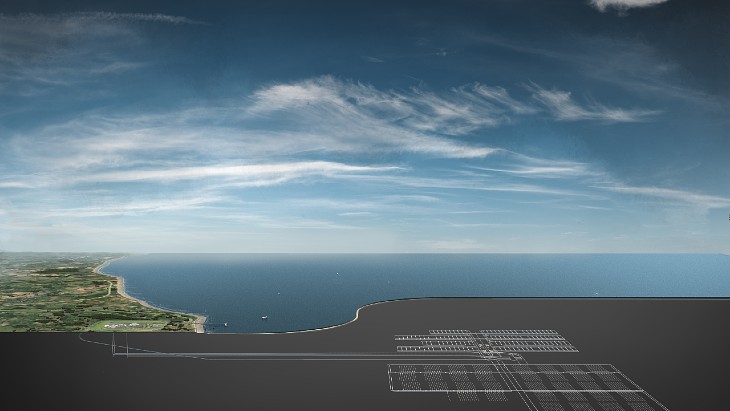A Geological Disposal Facility (GDF) comprises a network of highly-engineered underground vaults and tunnels built to permanently dispose of higher activity radioactive waste so that no harmful levels of radiation ever reach the surface environment. Countries such as Finland, Sweden, France, Canada and the USA are also pursuing this option. The UK search for a site is based on the idea of community consent.
Four localities have formed Community Partnerships interested in hosting the GDF, with the studies to focus on them - Allerdale, South Copeland and Mid Copeland in Cumbria in northwest England, and Theddlethorpe in Lincolnshire, in eastern England.
Each of the potential locations will be assessed against a number of siting factors including safety and security, the environment, engineering feasibility, geology, transport and value for money. The overall aim is to ensure that a GDF can be constructed, operated and closed safely. The initial stage will see geophysical surveys and desk-based studies of existing data on local geology and things such as transport infrastructure.
Malcolm Orford, major permissions programme lead at NWS, said: "This work signifies progress in the GDF siting process. We are now assessing a range of information to help build our confidence about whether the current locations engaged in the process could host a GDF."
Information gathered from the studies will be part of the process of approvals when more detailed investigative work is conducted for communities that progress to the later steps in the process, says NWS, "including the drilling of boreholes, to understand more about the geology deep below the surface where a GDF could be built".
When a site is ultimately selected, NWS said a decision to develop a GDF would be taken only if the "potential host community has had a say and given consent through a Test of Public Support. The GDF requires both a suitable site and a willing community".
The UK has used nuclear technology for more than 60 years - for power generation, industry, medicine and defence. These activities have created radioactive waste which needs to be managed safely. This waste is currently stored at more than 30 surface facilities across the UK, which have to be replaced every 50-100 years.







_55401.png)
_23009.jpg)






